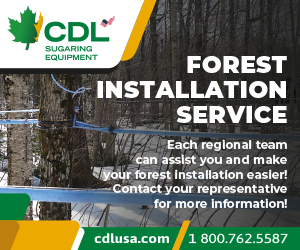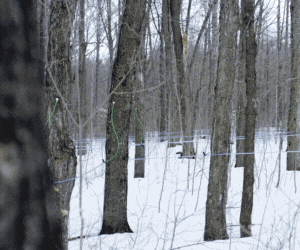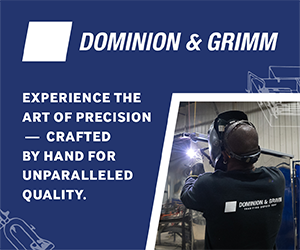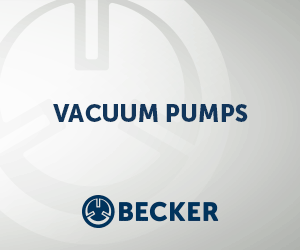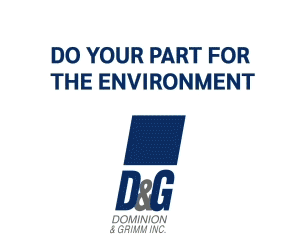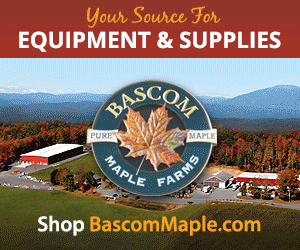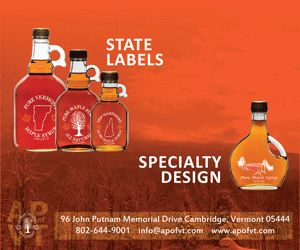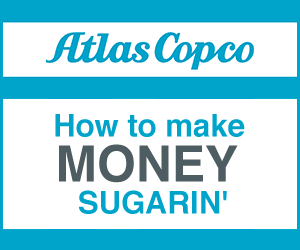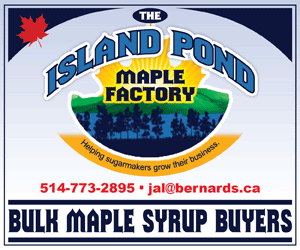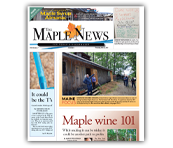BACK TO HOME
Food Safety & Gov't Regulations
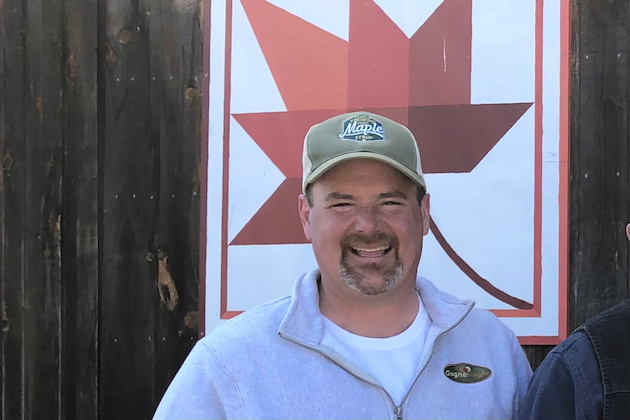
Organic certification program in Swanton, Vt. this month
Peter Gregg | August 15, 2023
SWANTON, Vt.—Join NOFA-VT for their 2023 summer workshop on organic maple production coming August 28.
Interested in learning more about organic certification and sugarhouse food safety?
Join NOFA for a tour at Gagne Maple, a fifth generation wood-fired sugaring operation certified organic by Vermont Organic Farmers (VOF) and a sugarhouse food safety program participant with the Vermont Maple Sugar Makers' Association (VMSMA).
Jason Gagne will lead a tour following the flow of sap to syrup while we discuss organic and food safety requirements relevant to each step of the process.
Staff from VOF and VMSMA will discuss the certification requirements and benefits associated with organic and food safety certifications.
[ MORE ]

International Maple Grading School to Lowville, N.Y. September 7
Kara Dunn | July 25, 2023
LOWVILLE, N.Y.—The Northern New York Agricultural Development Program (NNYADP) is collaborating with the International Maple Grading School and Quality Control Program to offer a full day of hands-on maple education for beginning and advanced maple producers.
The highly-requested training combines science-based instruction with intensive hands-on activities on how to accurately grade maple syrup and maple products and other quality control measures.
The program will be offered on September 7 from 8:30 am to 4:30 pm at the Lewis County Education Center, 7395 East Road, Lowville, New York. [ MORE ]

Gov't funds available for sugarmaker equipment upgrades
| June 23, 2023
HARRISBURG, Pa.—USDA Natural Resource Conservation Service (NRCS) holds a magnitude of hidden gems to offer maple syrup producers.
For example, through our Technical Service Provider (TSP), NRCS can help develop both Energy Management Plans to identify areas of an operation that could become more efficient in cost of operation and time, and Forest Management Plans that inventory and alleviate resource concerns and are geared toward planning a strategy to create a healthier forest based on landowner goals.
To help in the implementation of the Energy Management Plan, NRCS’s Environmental Quality Incentives Program (EQIP) can provide cost share incentives where the incentive payment is proportionate with your operations size. Items include:
-Energy Efficient Hot Water Heaters,
-VFD’s for vacuum pumps
-Automatic Control Systems
-Reverse Osmosis machines
-Oil‐Fired Evaporators [ MORE ]
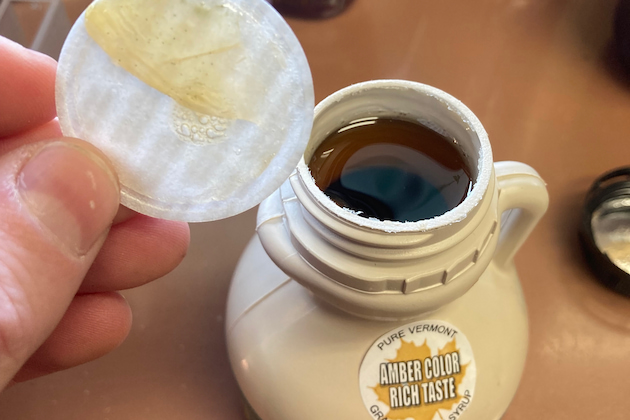
Vermont agency issues 'report card' on maple inspections
Tucker Diego, VT Agency of Agriculture, Food & Markets | August 1, 2022
inspections it conducts at retail stores throughout the state.
You can think of these as “report cards” for how well maple products meet Vermont requirements.
Inspectors review product labels and sample maple syrup to ensure those products meet standards for quality, food safety, and fair labeling.
This work is important for maintaining a fair market for producers, protecting consumers from unsafe products or inaccurate labeling, and supporting the high quality of the maple industry.
These results are from nineteen inspections which were completed between January and June, and included thirteen routine, one follow-up, and five for-cause inspections. [ MORE ]
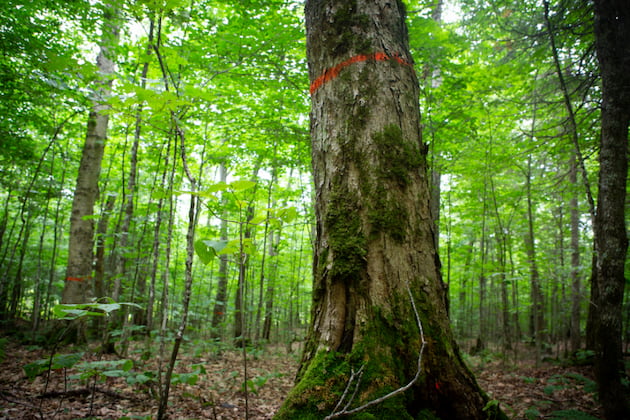
Federation urges government to stop logging maples on Crown land
Peter Gregg | September 29, 2021
LONGUEUIL, Que. —Tap 'em don't chop 'em.
With logging due to begin this fall, the Québec Maple Syrup Producers (QMSP) federation is urging a review of the provincial Québec Timber Production Strategy, which calls for logging maple forests on Crown land that could otherwise be tapped by sugarmakers.
Introduced last December by the Ministre des Forêts, de la Faune et des Parcs (MFFP), the policy has devastating consequences for maple producers on public lands and the future of the maple industry in general, the federaion said.
The government strategy sets aside a mere 30,000 hectares of public land to maple production, far less than the 200,000 hectares QMSP says the industry will need.
QMSP is pressing for changes before too much damage is done. [ MORE ]
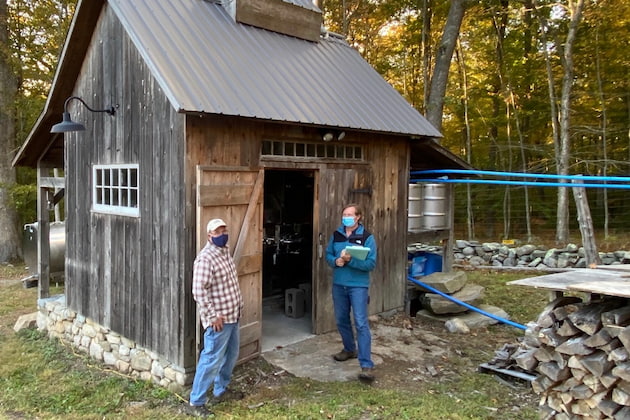
USDA to reimburse farmers for organic certification fees
Peter Gregg | September 20, 2021
WASHINGTON—Organic sugarmakers can now apply for U.S. Department of Agriculture (USDA) funds to cover the cost of receiving or maintaining organic certification.
Applications for the Organic Certification Cost Share Program (OCCSP) are due Nov. 1.
Producers can be reimbursed for expenses made between Oct. 1, 2020 and Sept. 30, 2021 including application fees, inspection costs, fees related to equivalency agreement and arrangement requirements, travel expenses for inspectors, user fees, sales assessments and postage.
Meanwhile, it’s not too late to get certified organic for the upcoming season, say industry officials.
“Maple is one of the easiest crops to certify,” said Donald Franczyk, executive director of Baystate Organic Certifiers, a USDA accredited certifying agency providing organic certification to farm and processing operations throughout the U.S. [ MORE ]
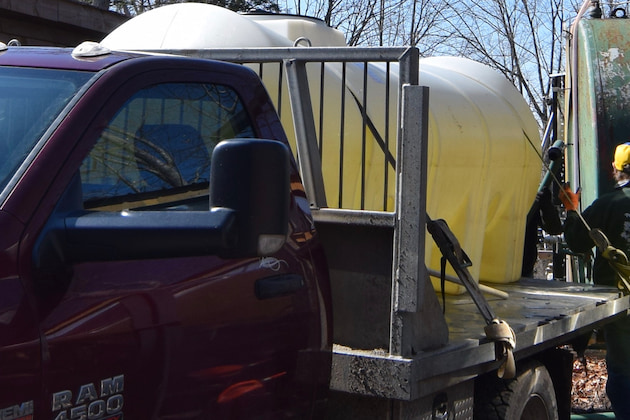
Sap hauling banned in some Wisconsin towns
Theresa Baroun | August 12, 2021
MADISON, Wisc.—Sugarmakers in Wisconsin have been banned from hauling sap by local town and county restrictions.
Some townships and counties have put their law enforcement on high alert during sap season to enforce road bans and weight limits during the spring break up, which makes it nearly impossible for those that need to move sap to do so legally.
The Wisconsin Maple Syrup Producers Association (WMSPA) has been working with the Wisconsin state legislature to get the department of transportation to recognize maple sap as an agricultural product.
There is a long way to go and a lot of minds need to be educated that maple sap is perishable ag product, no different than the dairy industry moving milk.
Legislative Bill 262 is currently being considered by the legislature in Madison.
[ MORE ]
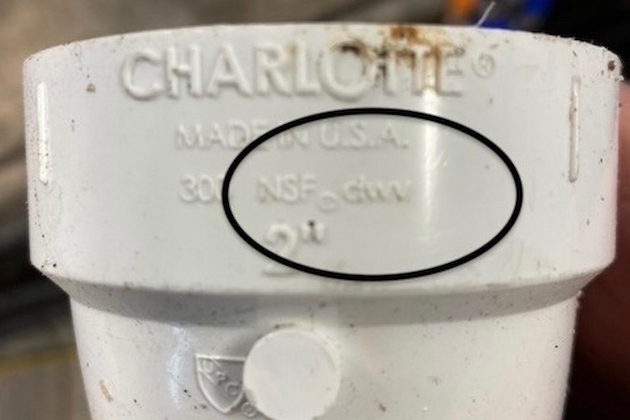
Non food-grade PVC could become a issue
Peter Gregg | May 26, 2021
HIGHGATE, Vt.—Get out your wrenches.
The development of a new sugarhouse certification program in Vermont has uncovered a possible new food safety issue for the whole industry—the use of non food grade PVC pipe.
“I don’t think anybody knew this was a problem,” said Arnie Piper, vice chairman of the Vermont Maple Sugar Makers Association, who is spearheading a voluntary first-of-its-kind state certification program that is expected to launch in the near future.
At issue is some PVC used in sugarhouses and sold by plumbing supply houses not stamped as food grade but instead intended for drainage, waste and venting.
“The bad stuff is gonna say DWV,” Piper said. [ MORE ]
















